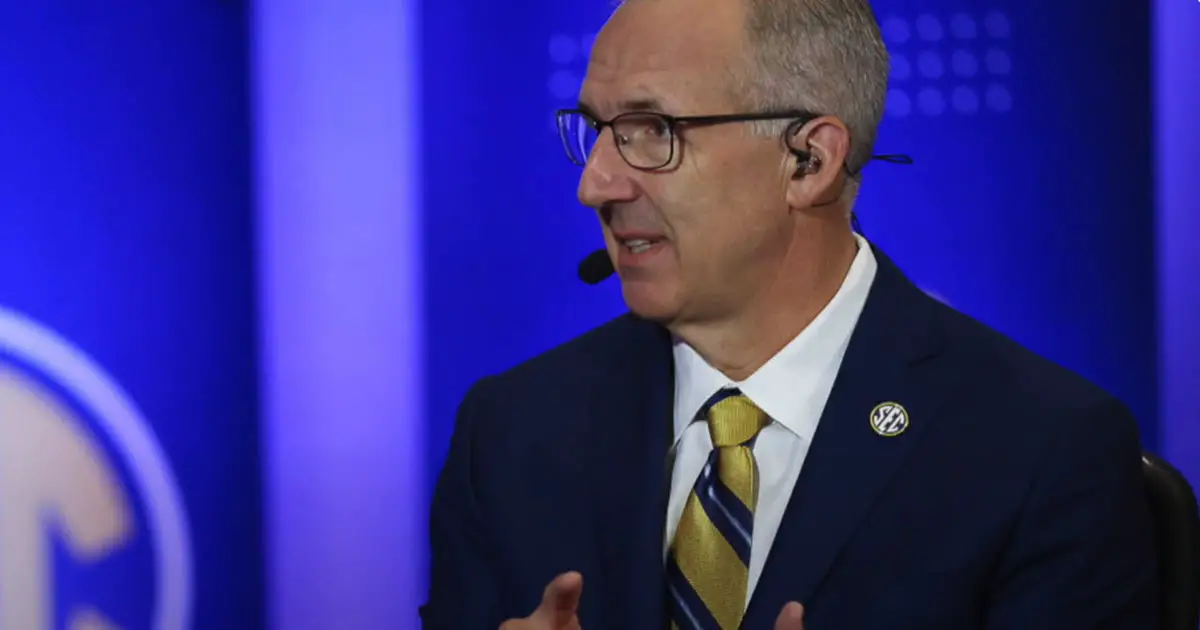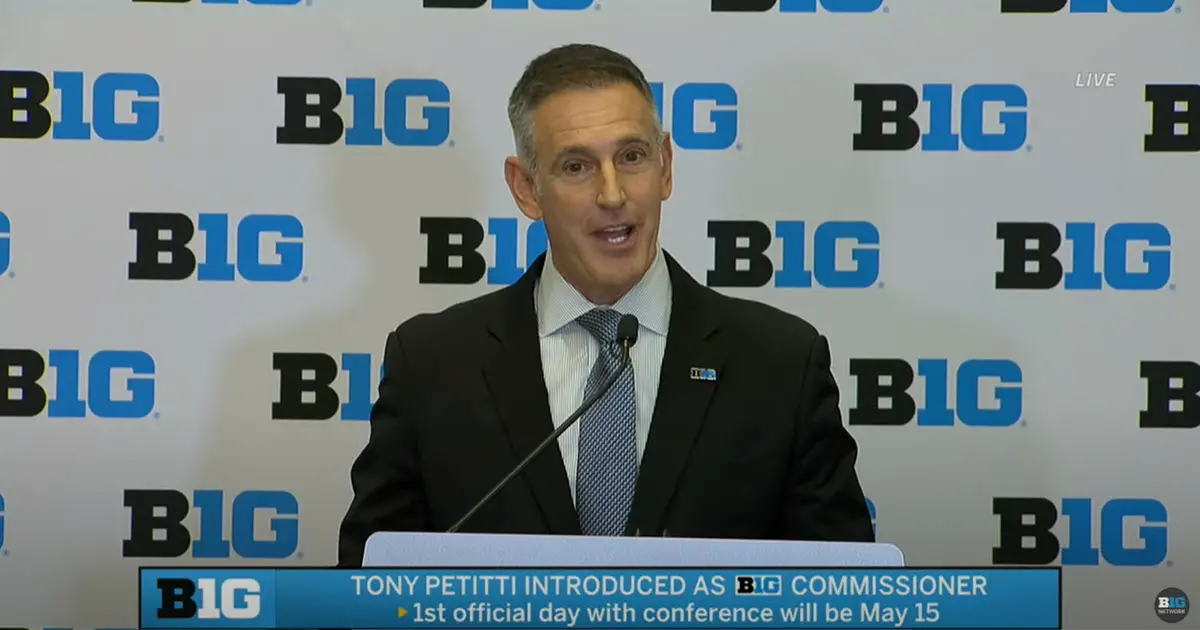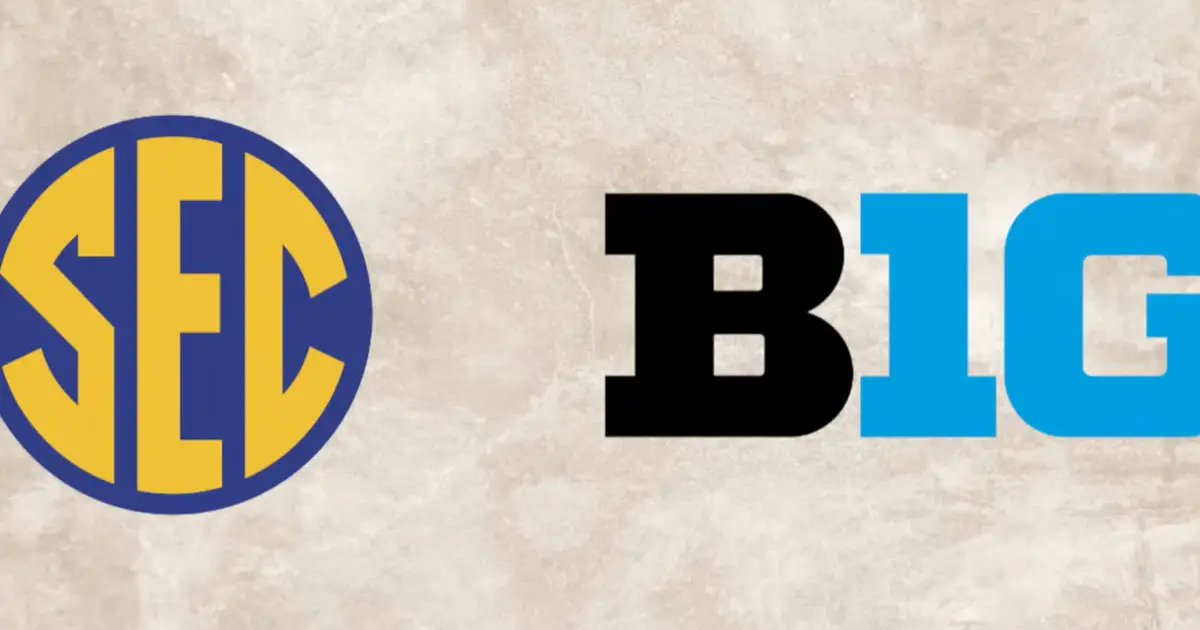What is considered to be the first college football (CFB) game was played on November 6, 1869, in New Brunswick, New Jersey between New Jersey (now Princeton) and Rutgers. Possibly the high-water mark of Rutgers football with Rutgers winning the game 6-4 in a more rugby-like game than what we consider to be the game of ‘Football’ today. One hundred, probably fewer, folks were in attendance. I pulled Mr. FishDuck from his fun with NFL DFS to marvel together at the changes over time in college football.
Back then, no player was being directly paid by his school or by third parties. However, a Booster may have been on the scene. Pay-For-Play by your school directly? Third parties paying you for the use of your Name. Image, and Likeness? Likely the guys in the game were offered a few adult beverages post-game but that’s it. The more things change?
I listened to SEC Commissioner Greg Sankey‘s interview with Paul Finebaum on February 8, 2024. The focus of the interview: Why did the B1G and the SEC form a ‘Consortium? (Call this anything you like other than an ‘Alliance.’) Why the Consortium, Greg? (Note please, I have added my puny voice on these matters to that of Greg’s. Greg was far more PC with his answers.)
1. The recent CFB Playoff meetings reached no consensus on the 2024/25 Playoff with six conference champs and the six at-large model, along with the five-seven model that had been approved by all conferences and Notre Dame. (Except the Pac-12 (Pac-2) conference) In other words, the tail is no longer going to wag the B1G/SEC dog. It is illogical for Troy to have the same voting power as Alabama. Or Kent State having the same say as Ohio State…or Oregon State as Oregon. It is insane for Washington State and Oregon State, two teams that never played for a BCS or Playoff title but shared in money earned by teams that did so compete, to frustrate a restructure of the coming 12-team Playoff format.

SEC Commissioner Greg-Sankey (Screenshot from Hit That Line Video)
2. With disagreement on current and future formatting, we cannot take an agreed-upon format to the media where we intend to market the 2026 through 2031 broadcast rights to the media at large. Again, a new format of the 2026 through 2031 Playoff broadcast model cannot, today, and the money to be distributed therefrom, be offered to the media without the approval of 10 conferences and Notre Dame. And one of the conferences with voting power has two member schools. There is ‘Sense’ and there is ‘Less.’
3. The Dartmouth lower-level NLRB decision in favor of the Dartmouth Men’s Basketball team being allowed to form a union. Dartmouth as an Ivy League member provides no athletic scholarships. Dartmouth provides 35 varsity sports and 33 club sports. Not one team including merchandise sales makes money for Dartmouth. Now, think how the NLRB, which supposedly has no public schools under its aegis, wants to treat money-making teams. Private institution USC has been given notice by the NLRB that the NLRB believes that all USC ‘student-athletes’ are employees. And because the Pac-12 enabled this behavior by SC, the entire Pac-12, or what used to be the Pac-12, is subject to the same criteria public or private.
4. Without consulting ‘us,’ Warner Brothers, ESPN, and Fox have formed a media entity dedicated to streaming sports events. We need to have input on the number of our (B1G + SEC) games that will be streamed. This is a bottom-line Power 2 issue. How many games will be removed from linear to streaming and what will we share if our games are sold on pay-for-play? We, especially the Power 2, did not agree to the current media deals without a restriction on streamed games. For example, in 2024 NBC’s Peacock cannot stream more than nine B1G games.
5. The Tennessee and Virginia Attorney Generals have brought suit against the NCAA claiming that frustrating direct payment from a player’s school to the player rather than via 3rd party NIL is a restraint on trade. The judge in the matter did not grant a temporary restoring order (TRO) against the NCAA. However, like Judge Kavanaugh in his affirmation of the Supreme Court’s 9-0 decision in the Alston case, the judge in this case went beyond a simple denial and opined that not allowing direct school-to-player payment depresses the market and likely violates antitrust law.

Tony Petitti, B1G Commissioner (Screenshot from Big 10 Network Video)
6. Unsaid but near the top of Greg Sankey’s and B1G commissioner Tony Petitti’s list, taking litigation decisions out of the hands of the NCAA, an entity face-planted in court time after time in litigation that put large lawyer fees on the backs of its members. B1G/SEC and small.
In particular, the ‘House’ class action case is coming close to being decided in Federal Court. The House plaintiffs are claiming retroactive damages for not being allowed to own their respective NIL before NIL payments were approved by the NCAA, only as the result of the NCAA being pressured by various states’ approval of NIL. Back damages in this case, think about something as modest as minimum wage payments for all of the men and women who played varsity sports in college, could reach 4 Billion dollars! No wonder the Power 2 conferences want to step up and deal with this truly existential threat to college sports. There is no reason to trust the decision-makers in Indianapolis NCAA HQ.
A bunch of guys went out and played ball in New Jersey on November 6, 1869. Not a lot different from my two brothers and I going outside and playing football in the snow in Massachusetts during the Rose Bowl halftime. Although as a Grey-Beard I have reservations, I applaud this ‘Consortium.’ A Consortium not designed to take down the NCAA, as neither Greg Sankey nor Tony Petitti want this. Instead, the Consortium is designed for B1G/SEC business leaders to save CFB football from itself before we return to 1869.
The Dow Jones Industrial companies do not let the tail of the Fortune 500 companies wag their tail.
Jon Joseph
Aiken, South Carolina
Top Screenshot from Depressed Ginger Video

Jon Joseph grew up in Boston, Massachusetts but has been blessed to have lived long enough in the west to have exorcised all east coast bias. He played football in college and has passionately followed the game for seven decades. A retired corporate attorney Jon has lectured across the country and published numerous articles on banking and gaming law. Now a resident of Aiken South Carolina, Jon follows college football across the nation with a focus on the Conference of Champions and the Ducks.

